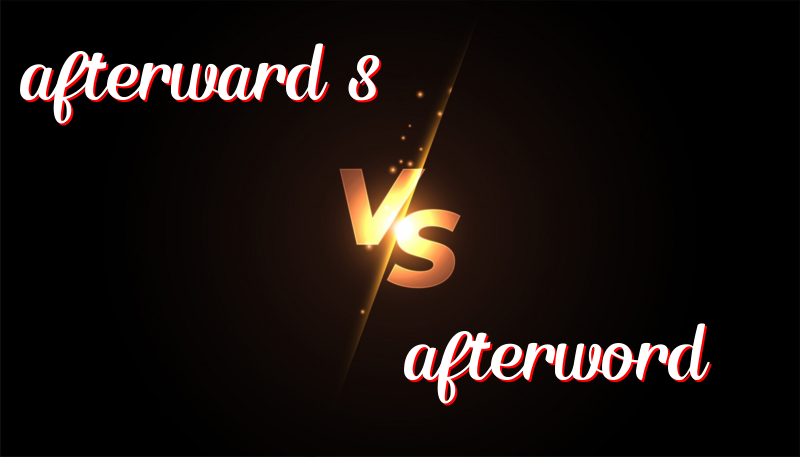英語單詞afterward(s) 與 afterword的區別
September 08, 2024
Afterward(s) 和 Afterword 的不同
在學習英語時,容易混淆的兩個詞語是 “afterward(s)” 和 “afterword”。這兩個詞有不同的意思和用法。下面將詳細介紹這兩個詞的歷史、用法以及怎樣記住它們的區別。
詞語的歷史
“Afterward(s)” 來自古英語 “æfterweard”,意思是「之後」或「接著」。它後來演變為現代的 “afterward” 或 “afterwards”。”Afterword” 則是由 “after” 和 “word” 組成,主要指書籍或文章的結尾部分,即「後記」。這個詞是在19世紀末期才開始得到廣泛使用。
用法及例句
Afterward(s)
“Afterward(s)” 用於表示在某個事件之後。可以用在句子的開頭、中間或結尾。”Afterward” 和 “afterwards” 是同義詞,可以互換使用。
- The party ended, and afterward we went home.
派對結束後,我們就回家了。 - I will call you afterward.
我會之後給你打電話。 - We went shopping, and afterwards we had lunch.
我們去購物,然後吃了午餐。 - She felt tired afterward.
她之後感到很累。 - Afterward, they decided to watch a movie.
之後,他們決定看一場電影。
Afterword
“Afterword” 通常指在書籍或文章的結尾的部分,即「後記」或「跋」。它主要用於敘述作者後來的想法,以及對文章進行總結。
- The author included an afterword in the book.
作者在書中加了一篇後記。 - I always read the afterword to understand the author’s perspective.
我總是閱讀後記以了解作者的觀點。 - The afterword of the novel explained the historical context.
這部小說的後記解釋了歷史背景。 - The book’s afterword provided insights into the writing process.
書的後記提供了對寫作過程的見解。 - The afterword added a personal touch to the story.
後記為故事增添了個人色彩。
記住區別的技巧
記住 “afterward(s)” 和 “afterword” 的區別有一個簡單的技巧:“afterward(s)” 意味著「之後」,可以和時間相關聯,而 “afterword” 是「字」的一部分,指的是書的「後記」。”
總結
總之,”afterward(s)” 是一個副詞,用於表示某事件之後。而 “afterword” 是一個名詞,用於指書籍或文章的後記。記住這個區別,可以幫助您在學習和使用英語時更加精確。

Leave a Reply
You must be logged in to post a comment.